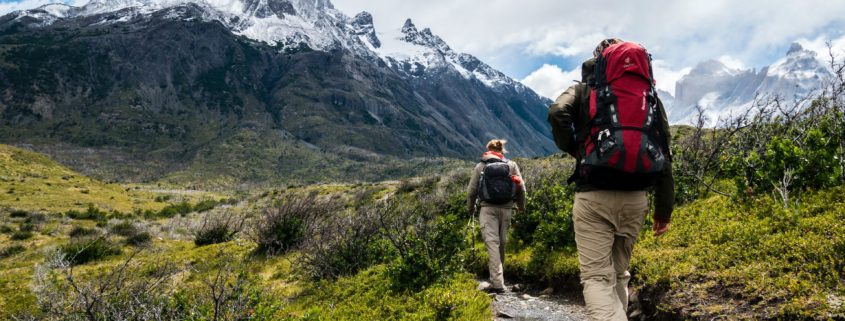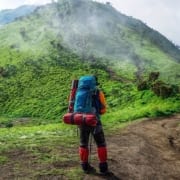How to Optimize Your Nutrition while Backpacking
Wilderness backpacking is a new adventure every time you step out. Whether you’re making a long trek or only hiking for a few hours, proper nutrition is key for a safe, healthy, and enjoyable backpacking experience.
As fun as backpacking can be, it’s also often challenging, especially if you prefer to go off the beaten path. Fueling your body the right way will make it easier to keep moving forward and take on any terrain that comes your way.
However, if you’re sick of pre-packaged energy bars and gel shots, there are plenty of ways to get creative with your backpacking nutrition while exploring the backcountry. Let’s cover how to pack proactively for your next journey, which foods you should prioritize, and how making nutrition a priority on the trail will boost your performance and help to ensure you stay healthy.
Pack Smart
As an avid backpacker, you know that too much carrying too much weight is a problem. The last thing you want is to get dehydrated or for your stamina to run out quickly because your bag is too heavy. However, the last thing you should compromise is the food you bring with you! When planning your backpacking nutrition, try to get creative about what you pack and how it will impact the weight of your bag. Your goal should be to bring calorie-dense foods that give you energy without taking up too much space or adding too much bulk.
So, how much food should you pack for optimal backpacking nutrition?
The easiest way to figure that out is by doing a bit of math. Try using Petzoldt’s Energy Mile Theory to determine how many calories you’ll need. By the end of your trek, your goal should be the following:
Calories of Food Packed – Calories of Food Eaten = 0
If you’re not sure what to pack to meet your calorie goals, a good rule of thumb is to maximize lightweight foods that are high in caloric density, including
- Seeds
- Cereal grains
- Nuts
- Freeze-dried berries
These things will weigh less than energy bars and heavy bags of trail mix, but are high in calories and sugars, and will give you plenty of energy to stay on track.
Stay Hydrated
It’s recommended that you drink at least a quart of water per hour while hiking. If not, you could end up getting dehydrated quickly and experience symptoms like
- Dizziness or lightheadedness
- Fatigue
- Dry mouth
- Confusion
Those aren’t exactly things you want to experience when you’re on the trail. Water is essential for any avid hiker, no matter how much space it takes up. You can also choose to pack foods that have a high water content, like melon, celery, and pineapple.
If you’re hiking for a long time or you’re backpacking in extremely hot weather, water might not always be enough to replenish what your body is sweating out. In those cases, ingesting electrolytes is an important component of backpacking nutrition. You can get electrolytes through sports drinks, but consider using electrolyte powders or protein powders for an energy boost if you don’t want to pack separate drinks besides water. Especially if you’re over the age of 50 and backpacking, you need to be sure you’re keeping your energy levels high. Staying physically active will help, but you must feed your body properly as well.
Buying whole foods locally is always a good idea, but if you can’t find something you feel is essential to your trip, you’re bound to find it in an online shop.
Consider Using Supplements to Boost Backpacking Nutrition
Whole nutrition is essential for your health, especially when you’re an active backpacker. If you’ve been doing this for any length of time, you likely have a basic understanding of what your body needs to stay alert and healthy on the trail. That might include eating a hearty breakfast to boost your energy or stopping to rest and have a snack every hour or two.
However, depending on your personal nutritional needs as well as your activity level, what you eat might not always be enough to give your body what it needs. Backpackers can’t often obtain things like fresh meat or foods rich in omega-3s. If you know you’ll be on the trail for a while and want to ensure you’re focusing on whole-body nutrition while backpacking, supplements can help. Many are designed to boost your heart health, while others can ensure your mind and body are functioning the way they should.
Backpackers need to take nutrition very seriously. There’s a fine line between knowing what/how to pack and making sure you’ll have enough to sustain yourself on the trail. If you’re just starting out as a backpacker, err on the side of caution and “overpack” without weighing yourself down. You’ll quickly learn what you need to stay healthy and hydrated on your treks through some trial and error. Whatever you do, though, keep backpacking nutrition at the top of your priority list, and listen to your body when you’re on your backpacking adventures.
About the author









Leave a Reply
Want to join the discussion?Feel free to contribute!